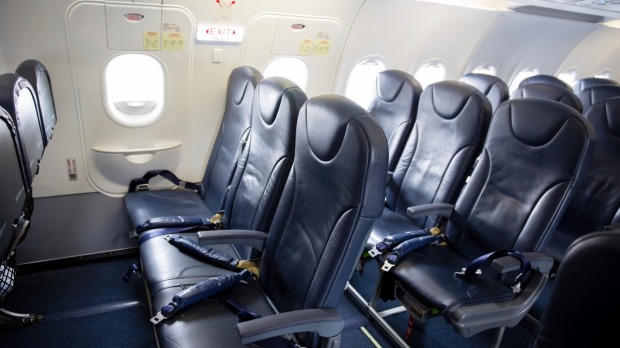
My daughter, son-in-law, granddaughter and myself have booked to go to England in July with a stopover in Singapore. I'm on medication for DVT and I requested an emergency exit seat but was told they are held for frequent flyers. I offered to pay extra but was told there is nothing they can do. Any way to get around this?
V. McKeown, Shoal Bay
Not sure whether you're hearing that from your airline or travel agent but they're telling porkies.
Most airlines sell their exit row seats, at a price that varies depending on how long the sector is and which airline.
Singapore Airlines is the cheapest I know (ranging from $US20 to $US100 depending on the length of flight. The charge on Australia to Singapore flights is $US40).
There are a handful of airlines that still have no charge for these seats, including Emirates.
Any unsold exit row seats are up for grabs – you simply smile nicely at the check-in desk and ask.
In the last few weeks I've flown with Silk Air and Virgin Australia.
In all cases I asked at check-in if I could please have an exit row seat – bingo – success three times in a row.
It's important to make sure you check-in early on any airline that doesn't allow you to pay to reserve the seats, otherwise they'll likely be snapped up before you get a chance.
However the airline needs to be sure that in case of an emergency, passengers sitting in exit row seats are ready, willing and able to assist in opening emergency doors and evacuating the aircraft.
Your deep vein thrombosis condition might have an impact on your ability to carry out these duties.
If it happens that your condition rules out the exit row seat you should talk to your doctor and find out what the best strategy would be.
As a general rule, the most effective way to guard against DVT is to maintain good circulation.
Moving around the cabin and drinking plenty of water are crucial, and moving around every hour is a sensible minimum.
Compression stockings and a pre-flight dose of aspirin have been suggested as offering some protection against DVT but according to Professor David Gradwell of the Centre for Human and Aerospace Physiological Sciences at King's College London, there is no conclusive evidence that either strategy protects otherwise healthy people from the formation of blood clots.
However travellers with a predisposition to blood clotting might benefit.
Take the advice of your doctor.
Include your name and your suburb or town and send it to [email protected]. All published questions will win a Lonely Planet guidebook.
See also: New 'twister seat' could mean the end of the economy class squeeze